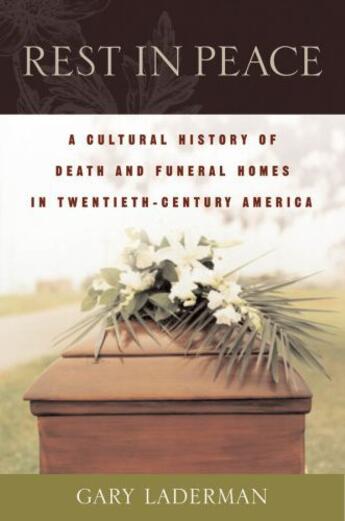-
Nombre de pages : (-)
-
Collection :
(-)
-
Genre :
(-)
-
Thème :
Non attribué
-
Prix littéraire(s) :
(-)
Résumé:
Though it has often been passionately criticized--as fraudulent, exploitative, even pagan--the American funeral home has become nearly as inevitable as death itself, an institution firmly embedded in our culture. But how did the funeral home come to hold such a position? What is its history? And... Voir plus
Though it has often been passionately criticized--as fraudulent, exploitative, even pagan--the American funeral home has become nearly as inevitable as death itself, an institution firmly embedded in our culture. But how did the funeral home come to hold such a position? What is its history? And is it guilty of the charges sometimes leveled against it?
In Rest in Peace, Gary Laderman traces the origins of American funeral rituals, from the evolution of embalming techniques during and after the Civil War and the shift from home funerals to funeral homes at the turn of the century, to the increasing subordination of priests, ministers, and other religious figures to the funeral director throughout the twentieth century. In doing so he shows that far from manipulating vulnerable mourners, as Jessica Mitford claimed in her best-selling The American Way of Death (1963), funeral directors are highly respected figures whose services reflect the community's deepest needs and wishes. Indeed, Laderman shows that funeral directors generally give the people what they want when it is time to bury our dead. He reveals, for example, that the open casket, often criticized as barbaric, provides a deeply meaningful moment for friends and family who must say goodbye to their loved one. But he also shows how the dead often come back to life in the popular imagination to disturb the peace of the living.
Drawing upon interviews with funeral directors, major historical events like the funerals of John F. Kennedy and Rudolf Valentino, films, television, newspaper reports, proposals for funeral reform, and other primary sources, Rest in Peace cuts through the rhetoric to show us the reality--and the real cultural value--of the American funeral.
Donner votre avis














